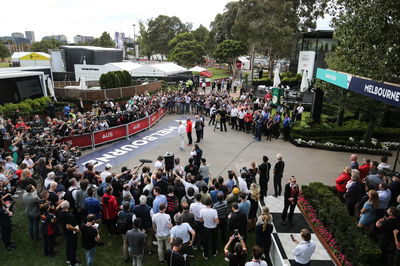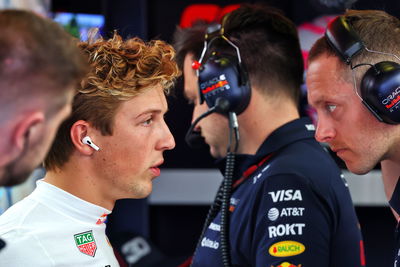Why F1 should suspend the 2020 season until the summer
Formula 1 has the opportunity to save some face in the wake of the shambolic situation that surrounded the now called off Australian Grand Prix - but it must act fast.
Arguably, not since the 2005 United States Grand Prix farce has F1 faced such an embarrassing situation as it attempted to deal with the ongoing coronavirus crisis by taking what appears, now in hindsight, to be an uncalculated gamble.
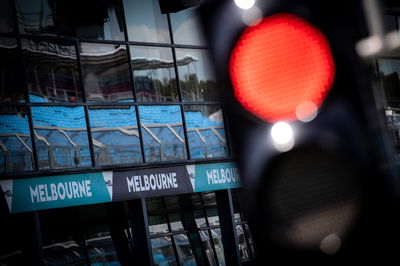
Formula 1 has the opportunity to save some face in the wake of the shambolic situation that surrounded the now called off Australian Grand Prix - but it must act fast.
Arguably, not since the 2005 United States Grand Prix farce has F1 faced such an embarrassing situation as it attempted to deal with the ongoing coronavirus crisis by taking what appears, now in hindsight, to be an uncalculated gamble.
F1 was last to announce the cancellation of its own race in Melbourne as media giants the BBC and Sky Sports engaged in a duel of conflicting reports, with the latter first reporting the season-opener would be going ahead, before the BBC learned it had in fact been canned.
Almost 12 hours after McLaren had confirmed one of its team members had tested positive for COVID-19 on the eve of the weekend and subsequently announced it would be withdrawing from the event, and with two hours until the scheduled opening practice session, F1 officially cancelled the race.
F1 left the entire paddock in the dark - quite literally - as discussions between the remaining nine teams went on throughout Thursday night before any form of official communication followed.
F1 ultimately found itself in a self-created perfect storm it could have so easily avoided had it taken preventative and precautionary measures earlier, rather than ploughing on ahead with plans to race in Australia despite the worsening coronavirus outbreak. The total lack of action and communication gave off a sense of a complete lack of preparation.
Other worldwide sports such as the NBA in America and football leagues across Europe had acted swiftly in suspending or postponing their upcoming events in response to the pandemic, while in the time it took for F1 to make a decision, the IMSA SportsCar Championship had already called off and re-arranged its Sebring 12 Hours race, while the likes of NASCAR and IndyCar confirmed it would be running its races behind closed doors.
On Friday morning, Formula E then announced it was temporarily freezing its 2019-2020 season for two months in a direct response to the coronavirus outbreak, with the all-electric series implementing a flag system to determine different phases and time windows where races could be rearranged or remain unaffected.
For F1, it took until a member of the paddock was diagnosed with the flu-like disease and a bold, decisive action from McLaren, before it could come to a sensible, yet delayed, conclusion.
Alarm bells should have started ringing for F1 chiefs when leading drivers including Mercedes’ Lewis Hamilton and Ferrari’s Sebastian Vettel questioned why the Melbourne race was going ahead. Hamilton said he was “very surprised” and “shocked” by F1’s approach, adding he believed the motive was driven by money-related reasons.
Hamilton’s comments were made as McLaren and Haas awaited test results from members of their teams that were self-isolating back at their respective hotels, with a first positive case confirmed just a matter of hours later. In total, Australian Grand Prix organisers revealed that nine people were tested for coronavirus, with one positive result.
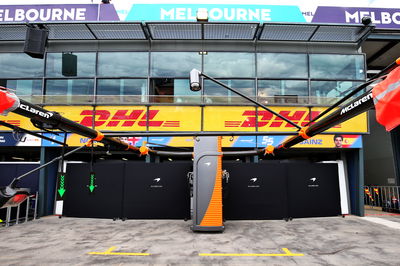
Members of the F1 community were left angered and baffled by the seemingly unprepared mess the championship found itself in, despite having knowledge of the escalating situation weeks in advance before the first plane had even taken off for Australia.
F1 now faces a very serious choice, whether it continues its current race-by-race approach and attempting to forge ahead with the season, or take swift immediate action.
There is less than a week until the paddock is due to descend in Bahrain for a race which at the time of writing at least, is provisionally going ahead behind closed doors.
There is uncertainty over whether McLaren could even travel to Bahrain, given that 14 members of its team and potentially other F1 personnel will now need to undergo a 14-day quarantine period. This leaves F1 with a major headache regarding when the season can actually get underway.
F1 sporting boss Ross Brawn had previously stated that a world championship race would not go ahead if one or more teams were unable to travel to the event due to travel restrictions.
“Obviously if a team makes its own choice not to go to a race, that's their decision,” he said.
“But where a team is prevented from going to a race because of a decision of the country then it’s difficult to have a fair competition.”
Looking at the calendar beyond Bahrain and the already-postponed Chinese Grand Prix - originally slated for April 19 - the next race is scheduled to take place is the inaugural Vietnam Grand Prix on April 5, though there are serious doubts over whether Hanoi’s first-ever F1 race can go ahead either.
Vietnam’s strict travel restrictions and quarantine procedures as well as the fact the country borders China, where the coronavirus outbreak originated last December, has placed one of F1’s headline events for 2020 under threat of cancellation.
That leaves the returning Dutch Grand Prix at Zandvoort as the next possible race, which is set to kick off the European leg of the season on May 3 as a back-to-back with the Spanish Grand Prix at Barcelona.
However, the events could be in jeopardy should COVID-19 continue to rapidly spread in both countries, with over 600 confirmed cases in the Netherlands and more than 3,000 in Spain to date.
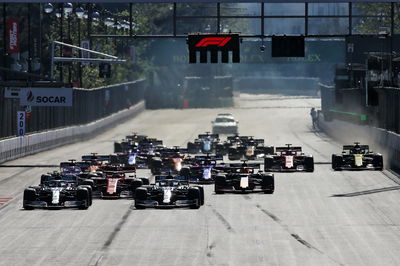
In response to concerns over the developing situation, both country’s premier football divisions, Spain’s La Liga and the Dutch Eredivisie, have already been suspended for “at least the next two rounds of matches”.
The doubts stretch further than those races, however, with Monaco Grand Prix organiser the ACM releasing a statement on Thursday saying that while it expects the prestigious street race to go ahead at the end of May, it is continuing to monitor the situation.
It is understood championship officials are evaluating the prospect of now starting the season on June 7 at the Azerbaijan Grand Prix in Baku and possibly shoe-horning in other postponed events later in the year, potentially running events through the summer break in August.
Now is the time for F1 to follow the lead of other major sporting competitions by suspending its own programme until further notice.
The risks the travelling circus of F1 now poses to the health and wellbeing of not only the 4,000 or so personnel and media that attend each race, but also to the fans and wider public, is now clear following the Australian Grand Prix wake-up call.
Is it a worthy risk in the name of sport? F1 has already rolled that dice in Melbourne and lost out in its gamble, leaving championship officials red-faced and facing heavy criticism for being reckless and irresponsible.
It would now be a sensible act to call off racing until the summer months when the spread of coronavirus spread is expected to slow and become manageable.
Either way, after demonstrating the perfect case study on how not to handle a crisis, F1 must learn from this omnishambles of a weekend to avoid a repeat in the future.
